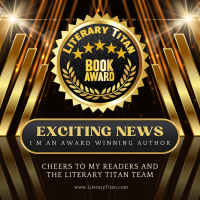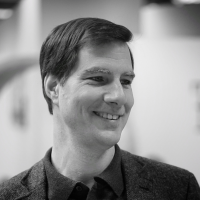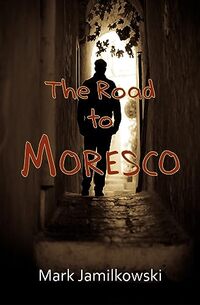Genre:
Historical Fiction- Country: United States
- Books: 1
- Profession: Finance
- Member Since: Jan 2024
- Profile Views: 1,207
- Followers: 44
- VISIT AUTHOR: Website, Twitter, Goodreads, Amazon, YouTube, Pinterest,
Mark Jamilkowski is a first-time author, a co-founder of a healthcare start-up, a husband and father. He enjoys music, reading and researching, games of strategy, photography, cooking, and writing. Mark authored "The Road to Moresco", a historical fiction novel released in August, 2023, to tell the incredible story of a mother and her daughter beginning in early 1900's Italy. The story of these persistent and resilient women is complex, intimate, and inspiring.
Mark Jamilkowski's Books
Stay in the loop on books by Mark Jamilkowski. See upcoming and best-selling books by the author here. You'll also find the deals on books by Mark Jamilkowski.
** Please note that the information or price displayed here may not be the updated. Make sure to double-check the latest book price before buying books.
** Also, there might be other books by Mark Jamilkowski not listed on AllAuthor.
| Book |
|---|
Mark Jamilkowski's Awards and Achievements
-


Gold Book Award
2024The Road to Moresco
award
Mark Jamilkowski has earned excellence awards over time. Here is the glimpse of the accolades clinched by the author.
Mark Jamilkowski Interview On 12, Jul 2024
 "Mark Jamilkowski is a first-time author and the co-founder of a healthcare start-up. A devoted husband and father, Mark enjoys music, reading and researching, games of strategy, photography, cooking, and writing. In August 2023, he released his debut novel, "The Road to Moresco," a historical fiction set in early 1900s Italy. This captivating story of a mother and her daughter showcases their persistence and resilience, offering a complex, intimate, and inspiring narrative."
"Mark Jamilkowski is a first-time author and the co-founder of a healthcare start-up. A devoted husband and father, Mark enjoys music, reading and researching, games of strategy, photography, cooking, and writing. In August 2023, he released his debut novel, "The Road to Moresco," a historical fiction set in early 1900s Italy. This captivating story of a mother and her daughter showcases their persistence and resilience, offering a complex, intimate, and inspiring narrative."
“The Road to Moresco” is a work of passion. I had a collection of ideas and images and emotions in my head, the result of a lot of conversation and research. Eventually the accumulation became too much to hold back and the idea of writing the story down, translating it from those images into a “sophisticated outline,” took shape. I actually searched for a ghost writer first, doubting that I could write the story with justice. I’m very fortunate and grateful to a supportive editor and publisher who understood my passion and appreciated my story telling ability. The primary inspiration though was the real life experiences of Clara, who I met late in her life.
The relationship between the mother and daughter in your novel is described as complex and intimate. Can you elaborate on how you developed this dynamic?The story revolves around Clara, the daughter who I met and talked with at length. I learned about the dynamics of her life, her relationship with her mother, and her conflict of both hatred and love that existed between them. I met Clara in her 80’s. Her mother, Maria-Luisa, passed away almost 35 years prior, and still her emotions about her mother were still raw and unresolved. I leaned into this dynamic throughout the story, from the very beginning of Clara’s life. I tried to give context to what Maria-Luisa was feeling and grappling with at the time of the birth. The internal conflict she felt reflected the societal conflicts within Italy at that time. The story weaved together the introspective conflict, societal change, world events, and inter-personal relationships. This forms the basis for the journey that is “The Road to Moresco.”
Your background is in healthcare entrepreneurship. How did your experiences in this field influence your approach to writing fiction?Entrepreneurialism itself is the relevant aspect. That requires creativity, courage, and a dash of being naïve. Courage in particular because there is a lot of vulnerability associated with writing a story like this. The combination of biography, history, psychology, and a sprinkle of fiction to tie it all together demanded that I insert a lot of myself into the story. It was important to me to be able to connect with each character within each moment to better understand what they may have done, how did they react, what did they say. As a result how they react is in large part how I may see myself coping with each situation. I also noted how that changes with age and experience as the story progresses.
What kind of research did you undertake to accurately portray early 1900s Italy in your novel?My research included traditional books and library shelf materials and from those the footnotes and bibliographies led me to other resources, including the internet where I discovered articles and papers written in the mid-1880s. In order to lay the groundwork of 1900’s Italy I felt it was important to understand the “how” and “why” of the society at that time. How did they get there, to espouse nationalism and fascism? Why? The roots began a long time ago. Internet resources and digital archives were invaluable to help me better appreciate the dynamics and history of that time. I also found the archive effort of war veterans, who participated in brief interviews that are recorded, to be immensely valuable to give voice to characters and events that are not as well represented in textbooks and other common resources. Armed conflicts are well documented, but not the impact on the citizens and people who are part of the result.
Music seems to be one of your passions. Did any particular songs or genres inspire scenes or characters in your book?I listened to 1950’s recordings and performances of opera and orchestral pieces to inspire me about the mood and interpretation that pervaded that time-period. I was attempting to be as authentic and connected to the characters in their time-space. If Maria-Luisa sat at the piano, what would she be playing, and why? There are some specific references to movements within certain piano works that I did find inspirational to the time and emotions that she would have been experiencing.
How do you balance your roles as a husband, father, entrepreneur, and now, an author?I am very conscious to maintain balance, but it is a constant effort. The start-up can be all consuming. This is a strong gravitational pull that is hard to break from because our mission is something I am incredibly passionate about. There are also multiple family related priorities that require my attention and love. You did not mention my need to balance time for myself. I make sure I give myself time, working out, eating right, getting sleep, meditating, and so on, otherwise there will not be anything for me to give to anyone else. I treat my time of being an author as a reward or treat, if you will. Writing and immersing myself in the project is a pleasure then and not a chore or imposition on some other priority. The challenge is one more of patience when progress and productivity are limited.
The theme of persistence and resilience is central to your novel. How do you think these qualities are reflected in the characters you've created?Clara (daughter) and Maria-Luisa (mother) are the two central characters but they are very much real people. I tried to represent them and their lives as true to fact as possible. The book has a strong biography element to it as a result. The sheer facts of their lives, and what they had to endure, set an immediate tone of resiliency that inspired me. It inspired me to such an extent I took on the independent effort to research their time periods and put their lives into context. I was also very purposeful to not elevate these women to some sort of heroic stature. They were very human, and made very human mistakes, and suffered very real traumas. I believe the persistence and resilience then comes about because as you read through the story, you know that, like walking The Road to Moresco, each step in life is leading to another. We learn, we adapt, we move forward. My goal with the story is to have you not only experience their journey, but for you to have your own personal one as well.
Are there any specific historical figures or events that influenced the storyline of "The Road to Moresco"?Clara and Maria-Luisa’s real-life and biographical experiences were the cornerstone of the story. I was amazed however at how historical figures from 1800’s Italian history, like Garibaldi, also became central to the story. History and Italian culture itself are almost their own characters in the story. I did have trouble finding solid research about the Cold War, specifically the impact on German life in western occupied parts of Germany. This time period and the psychological impacts of the politics of that time have a pivotal role in framing and shaping the second half of the novel.
Photography is another interest of yours. Did you use any visual references or imagery from your own photography in your writing process?Someday I hope to publish a coffee table book of poems and photographs that I have taken but no, for this effort, there were no photographs of my own to really use. I included a photograph I had of Clara, but that was it. The rest of the images and visual aids are sourced from books or the Internet.
What role does cooking play in your life, and did it have any influence on the narrative or themes of your book?I love to cook. I have very fond memories of cooking with my Italian grandmother learning the art of pinch of this pinch of that (no cookbooks!). I find that food has a way of making people connect more with a place. Describing the smells in an open air market with fresh fish and produce and meats and so on help to bring the reader to that market. They will have their own interpretation and sensation. That’s perfect. I want people to insert themselves into the story, to taste that pasta and clam sauce they had somewhere and imagine it as if they are sharing the meal with Clara or Maria-Luisa. Food can make anyplace seem like home. I want the readers to feel that this is their family, their home, their journey. I hope this intent and thematic impact is felt throughout the story.
Games of strategy require careful planning and decision-making. Did your strategic mindset influence the plot development or character arcs in your novel?This is a fantastic question. Yes I do believe this does impact how I think of the characters, what they are doing, and what we can of them next. The strategic placement of situation or dialog provided opportunity to explore specific topics and emotions. Sometimes it followed a Socratic approach, other times the effort was to establish a sequence of circumstances that set the stage for a larger set of circumstances and twist in the plot further on in the story. I admit there would be nights that I would wake up at three in the morning with an idea, gaining some sort of sub-conscious inspiration as the story marinated in my dream world.
How do you approach the balance between historical accuracy and storytelling in historical fiction?One of the hardest efforts in telling this story is the balance between fact and fiction. There are parts of the story that are heavy, thick (or rich, depending on your perspective) with historical fact. I wanted there to be adequate representation across the century for the complex political and social dynamics that shaped society and life for our characters. Some feel I went too far and the history could have been represented in a more truncated or abbreviated manner. Others enjoy the details that were never discussed in their education. To me these historical elements create landmarks, guideposts for us to follow along with the characters in the story. The more we understand what they were facing and how it impacted them, the more we are able to be empathetic to their circumstances and in that manner, the more we ourselves are the ones walking along that road to Moresco.
What message or takeaway do you hope readers will gain from reading "The Road to Moresco"?Home is within you. Peace, love, fulfillment, joy, playfulness, these are all things we are born with. We pack them up as life intercedes, as we “grow up.” They are still there. You are literally waiting for your own self to return “home.” I attempted to position the story in such a way that the way home for the reader is realized with the turn of the last page, that the reader too has taken The Road to Moresco.
Can you share any advice for aspiring authors who are also juggling multiple responsibilities, like you?Be patient, especially with yourself. Give yourself the grace and compassion to not be perfect. Also, have an ally in an editor who will give you solid advice and spend time with you to flush out your story like you intend it to be. Lastly, determine up front what your goals are and set your marketing plan accordingly. For example, if you are publishing a work of passion and love that is more for your satisfaction and fulfillment, then your marketing plan and sales goals will be modest with modest expectations. If you are publishing for mass appeal and are looking for a movie deal, then be prepared to hire professionals and spend a lot more time in promoting the work than writing.
What has your AllAuthor experience been like so far? What are some highlights?I really appreciate the support AllAuthor has given. I do not have time to monitor social media posts for example so the automated gif and tweet manager are a God-send for maintaining presence. I am not a social media user. These tools are perfect for my aptitude level. The community has been very supportive as well. It has been a great experience.
Ask Mark Jamilkowski a Question
Have brimming questions to ask author Mark Jamilkowski? Ask whatever you like, but keep it appropriate.
** Please note that unanswered questions will not appear on the page. Refrain from posting promotional messages.
Contact Mark Jamilkowski
The author, a good book and you! Contact Mark Jamilkowski here.
** Please refrain from spamming and don’t bombard the author with promotional mails/messages. Your IP/Email address may be blocked if found doing so.
Contact Author on:
Twitter,


